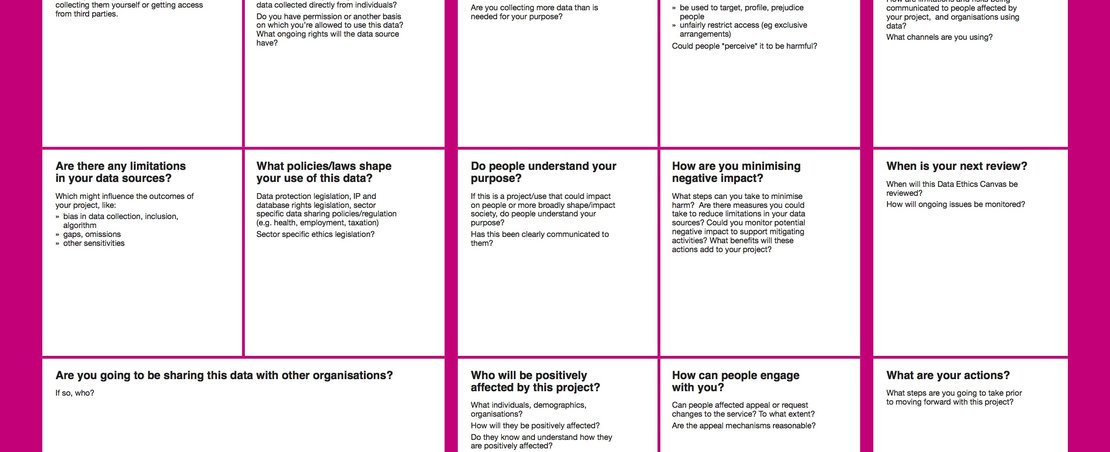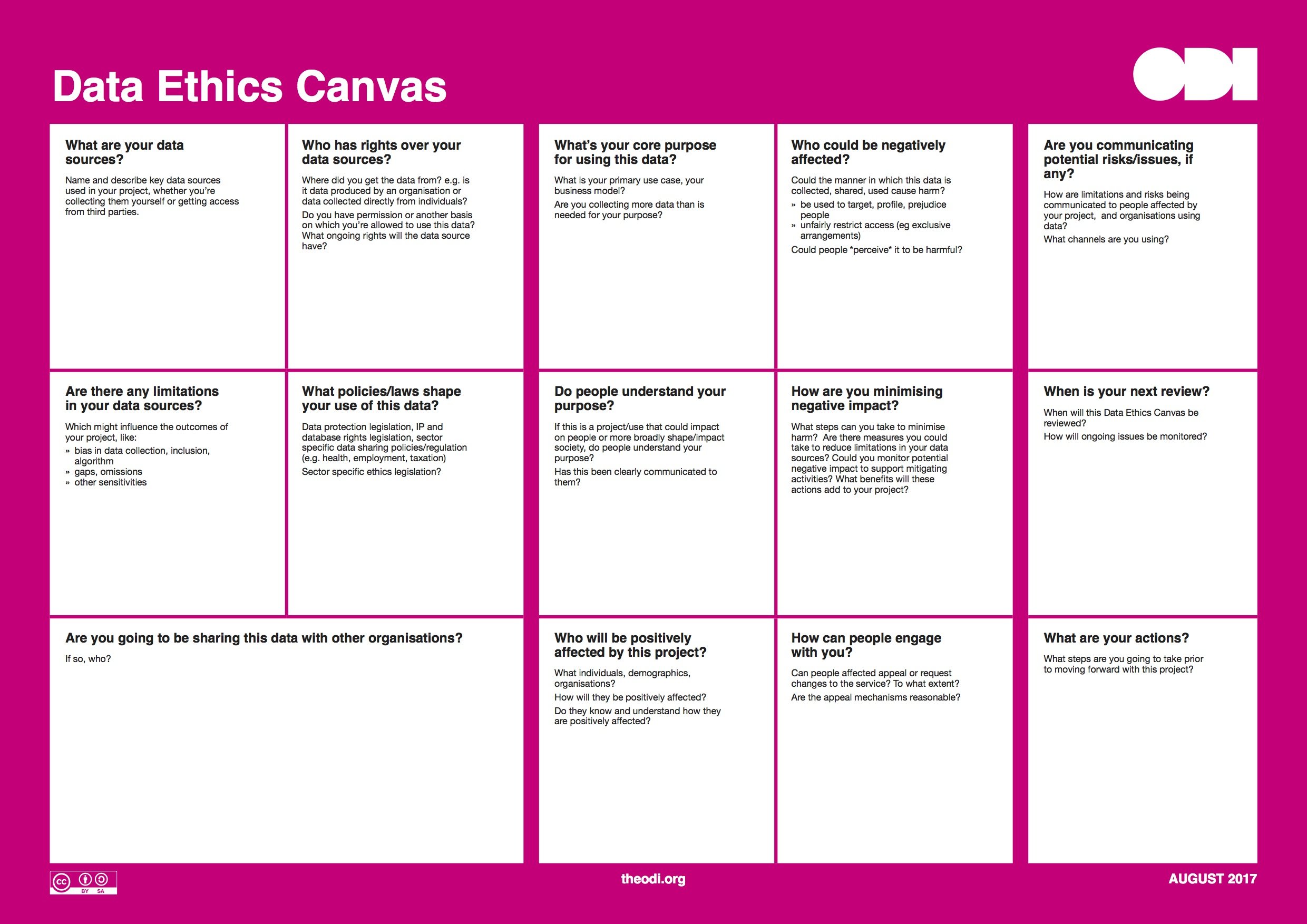
To mark the launch of the ODI’s Data Ethics Canvas, Amanda Smith and Peter Wells share the thought behind it, why it is important and how they hope it will be used by organisations and sectors

Data is emerging as a vital and virtual form of infrastructure that we rely on. This creates the opportunity to build better societies but also the risk that we lose trust, not just in data or facts but also in businesses and governments. One of the ways that we can address this is to improve data ethics. The choices made about what data is collected and how it is used should not be unfair, discriminatory or deceptive. Our new paper and tool will help you learn how to do this. Sectors and organisations are being called upon to develop their own data ethics principles, policies and processes. Increasingly, those collecting, sharing and using data are exploring the ethics of their practices and, in some cases, being forced to confront those ethics in the face of public criticism. Debates are accelerating on issues like the monetisation of personal data, bias in data sources and algorithms, and the consequences of under-representation in data.
For some time, the ODI has been working on measures to help organisations build trust in how they collect, use and share data, and to foster better use of data overall. Trust is an essential component of society. When trust breaks down, the public lose faith in the institutions that provide them with services, and organisations lose the ability to share data and collaborate in ways that could improve all our lives. A number of other organisations are working on initiatives in this area, both nationally and globally.
In sectors, such as global development, in areas of technology, for example artificial intelligence, and in academia. This work needs to expand and must include businesses and governments who have particular opportunities and responsibilities as the main collectors and users of data. Our whitepaper starts by exploring the relationship between data ethics and legal compliance, some existing data ethics frameworks and ethical considerations in data collection, sharing and use. By exploring data ethics in depth, we uncovered common assumptions about data ethics that we wanted to challenge.
- ‘Data ethics is only an issue where activities involve personal data.’ Ethics issues must also be considered in the collection and use of non-personal data. For example, not publishing the location of bus stops in poorer neighbourhoods can mean that the advantages of smartphone-mapping and route-finding services are not available to people who live in those areas, increasing existing inequalities.
- ‘Data ethics is concerned with data protection compliance.’ Complying with legal obligations – under the EU General Data Protection Regulation, for example – is just one part of treating data ethically. Data-related activity can be unethical but still lawful.
- ‘Data ethics is (only) about how organisations use data.’ Data ethics is about the impact that all data activities have on people and society. Collecting and sharing data only about certain groups of people may disadvantage them relative to others. All activities should be subject to ethical examination.
After this exploration – and considering the challenge of agreeing practical data ethics frameworks for sectors, societies or globally that it highlights – we offer an approach, the Data Ethics Canvas, for organisations to identify and manage potential data ethics considerations. It is based on the Ethics Canvas, a tool for assessing the ethical implications of any project designed by the ADAPT Centre for Digital Content Technology, which is itself based on the original Business Model Canvas by Alex Osterwalder.
We hope to see the Data Ethics Canvas used by teams starting new data activities. We will be using it in our own work with businesses and governments. It is designed to be collaborative, involving people from across teams with different perspectives.
We will continue to test and improve the Data Ethics Canvas in the months to come, and would welcome feedback and ideas. The Data Ethics Canvas and a user guide are included in the appendix of the white paper. You can write to us at [email protected]